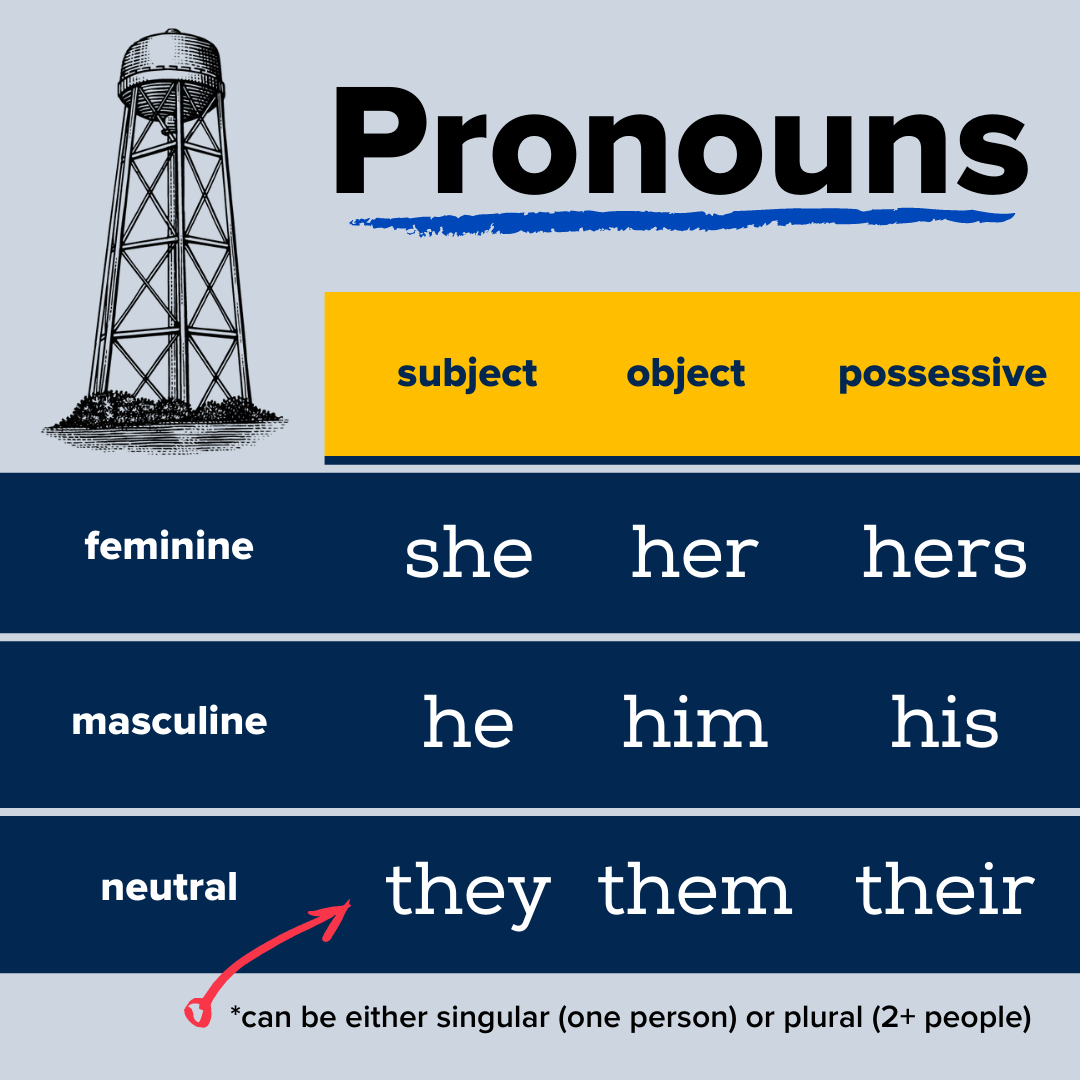Evolution of Third-Person Singular Pronouns in English
Language is constantly evolving. We add new words, and we adjust the ways we use old words. This happens a lot with nouns, verbs, adjectives, and adverbs, but we don't see it happen as frequently with some other categories like pronouns (me, your, etc.) or conjunctions (and, but, etc.). There have been some notable changes to the use of pronouns, though, and those changes are related to gender.
A few decades ago, it would be pretty common to see a sentence like this:
When you go to the doctor, he will start the examination by looking in your ears and mouth.
In this example, the doctor is assumed to be a male, so the masculine, 3rd-person pronoun he is used. As women's role in society expanded, though, we started updating that sentence to include the possibility that the doctor may, in fact, be a woman.
When you go to the doctor, he or she will start the examination by looking in your ears and mouth.
This has been a common option for the past few decades, but today, many people prefer to use they rather than he or she.
When you go to the doctor, they will start the examination by looking in your ears and mouth.
They has been used as a 3rd-person, singular, neutral pronoun for hundreds of years, but this usage was often avoided in formal language. Now, its usage is generally preferred over he or she. They is more concise, but more importantly, it is inclusive to people who are non-binary, which means people who identify as neither male nor female. We can use they to talk about people who are non-binary, but we can also use it anytime the gender of the person being discussed is unknown or unimportant.
Grammar of "They"
When you use "they" instead of other 3rd-person singular pronouns (he, she, or it), the verb should still follow the same pattern of agreement as it does with the 3rd-person plural "they."
My friend Mark told me that he goes to the ARC every day. (3rd-person singular masculine pronoun used)
My friend Mark told me that they go to the ARC every day. (3rd-person singular neutral pronoun used)
Note: even though it is a 3rd-person singular pronoun, it is should not be used to refer to people.
What are your pronouns?
When you meet someone new, it's best to check what pronouns they use instead of just making an assumption based on their appearance. If you state your pronouns when you meet someone, it's likely that they will reply with their pronouns, but it's also totally fine to ask.
Hi, I'm Mark, and my pronouns are he/him. What's your name?
I'm Cal, and my pronouns are they/them.
After someone tells you which pronouns to use, make sure to use what they asked, but if you mess up, just quickly apologize and correct yourself. Please also note that some people may use pronouns other than some form of he, she, or they.

For more information and tips related to gender pronouns, please check out this article from the UC Davis LGBTQIA center.
For more information on the history of "they," check out its description as the Merriam-Webster 2019 Word of the Year.
